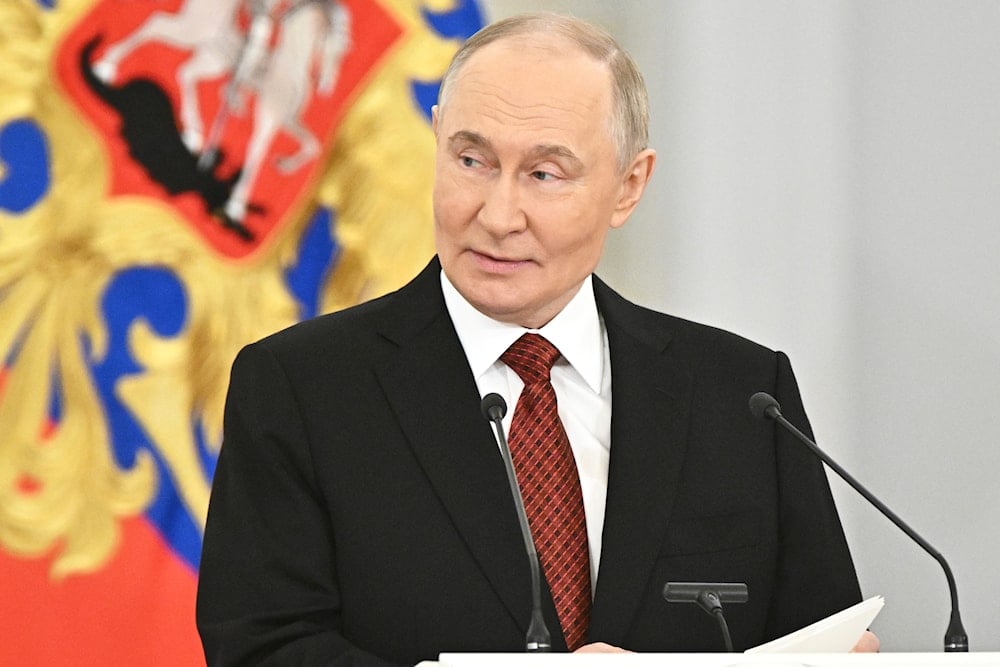Russia, UAE presidents discuss rising tensions in the Middle East
Russia and the UAE push for de-escalation as tensions rise between Iran and "Israel", with Russia offering mediation and urging the UNSC's involvement.
-

Russian President Vladimir Putin speaks at a ceremony for the Russian Federation National Awards during the celebrations for the Day of Russia at the Kremlin in Moscow, Russia, Thursday, June 12, 2025 (AP)
Russian President Vladimir Putin and UAE President Mohammad bin Zayed al-Nahyan engaged in a telephone conversation, during which they discussed bilateral relations and exchanged views on the current developments in the Middle East, according to the Kremlin on Wednesday.
"At the initiative of the Emirati side, President of Russia Vladimir Putin had a telephone conversation with President of the United Arab Emirates Mohammed Bin Zayed Al Nahyan," the Kremlin announced, noting that the two presidents expressed satisfaction with the high level of cooperation between the two countries.
In the phone call, Putin asserted Russia's willingness to act as a mediator in dialogue between Iran and "Israel", echoing previous similar announcements by Moscow.
"Vladimir Putin confirmed Russia's readiness to provide mediation assistance in promoting dialogue between the parties to the conflict, informing about contacts with several foreign leaders in this regard," the Kremlin stated.
According to a source within Iran's security forces who spoke to RIA Novosti on Tuesday, Iran expects Russia to play a significant role in the UN Security Council regarding the ongoing tensions with "Israel", with the source emphasizing that the international community should denounce "Israel's" aggression and take a firm stance against them.
UAE expresses solidarity with Iran
Earlier, in a separate call with the Iranian President Masoud Pezeshkian, the Emirati President Mohammad bin Zayed al-Nahyan discussed the continuing Israeli attacks on Iran, Emirati news agency WAM reported on Tuesday.
According to WAM, during their phone conversation, Mohammad bin Zayed Al Nahyan conveyed his solidarity with Iran and its people to President Pezeshkian.
The UAE’s president stated that the country remains engaged in consultations with all relevant parties to support efforts aimed at restoring regional stability, while UAE Foreign Minister Abdullah bin Zayed Al Nahyan emphasized the need for the United Nations and the UN Security Council to intervene in de-escalating tensions between "Israel" and Iran, warning of the broader risks posed to neighboring states.
Meanwhile, President Pezeshkian attributed the persistent regional instability directly to "Israel's" policies and the consistent backing they receive from Western nations, asserting that lasting peace in the area remains unattainable as long as Israeli actions continue unchecked with the protection of Western powers.
Pezeshkian added that Iran had participated in backchannel discussions with the United States aimed at fostering regional stability, only to see these diplomatic efforts compromised by what he described as "Israel's" persistent military actions that resulted in civilian casualties within Iran.

 3 Min Read
3 Min Read











